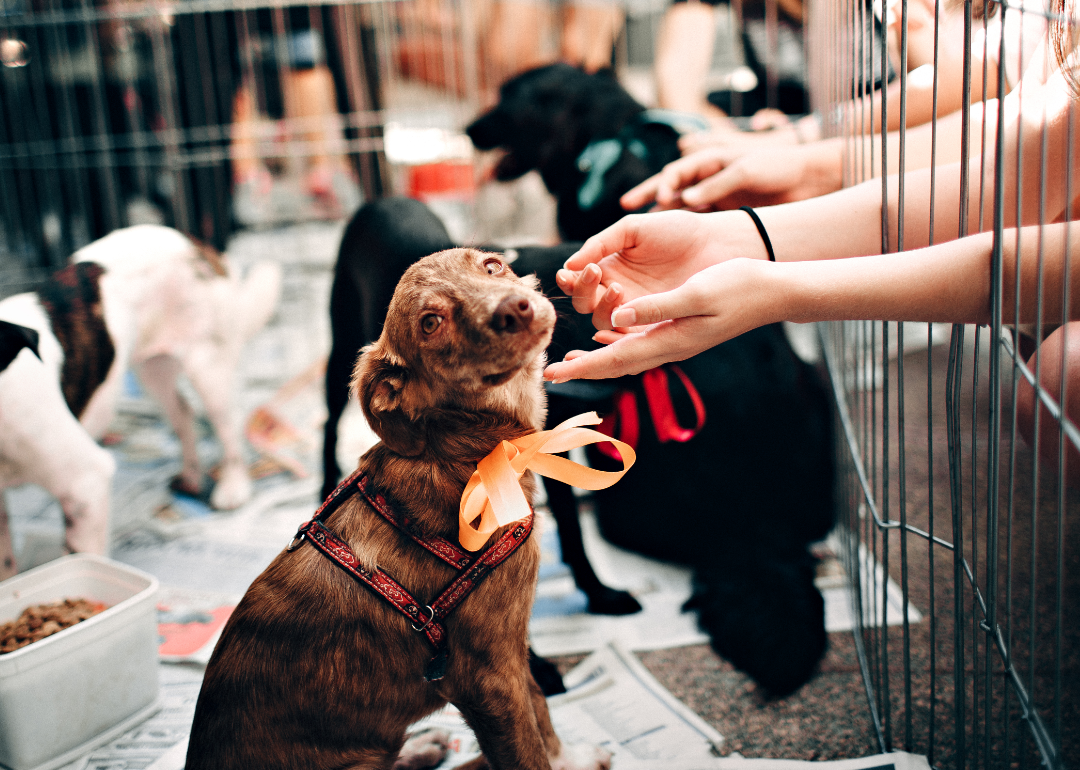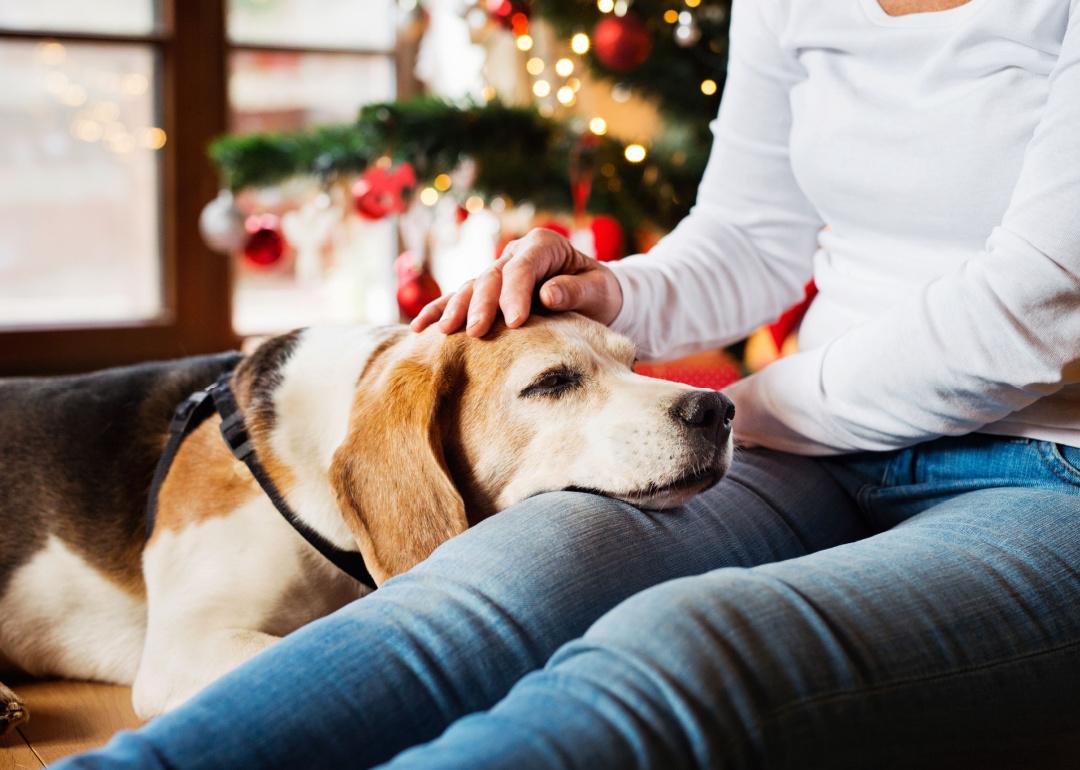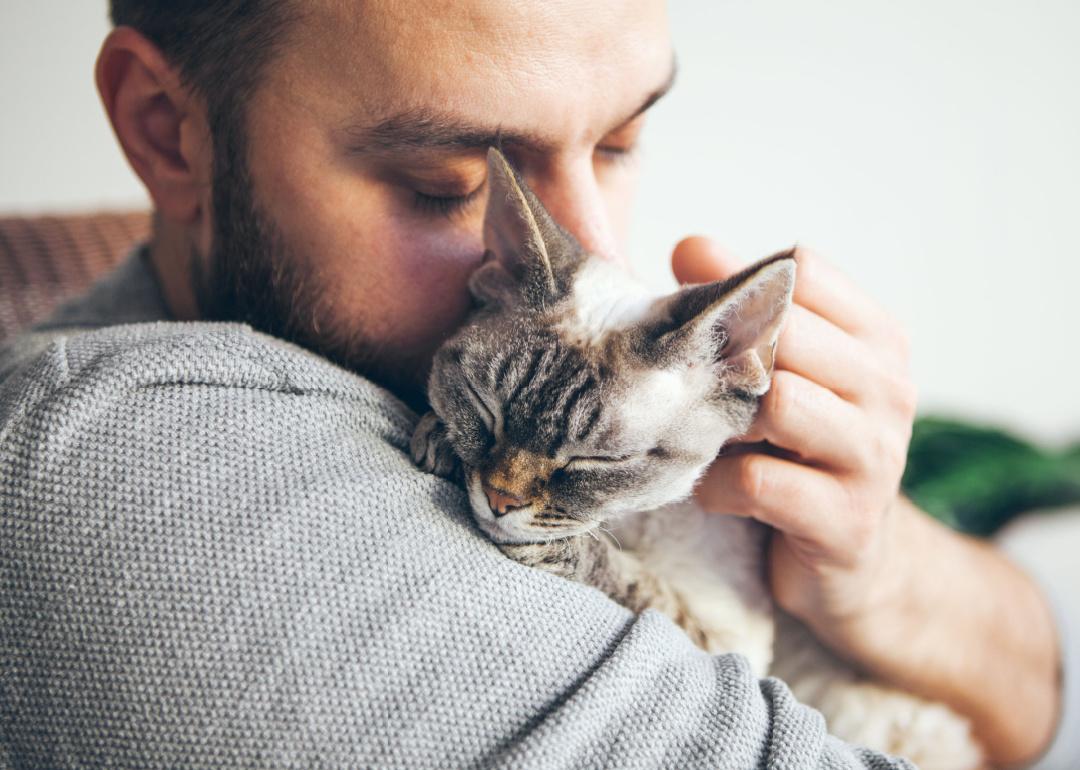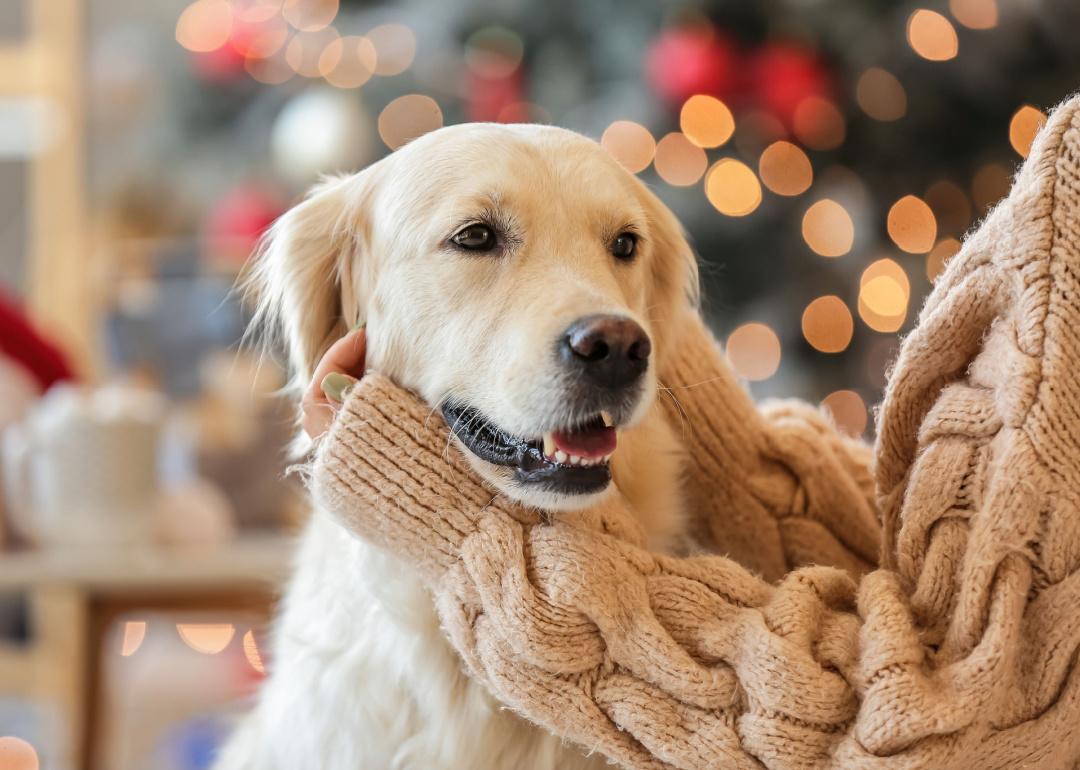
10 things to know before adopting a pet during the holiday season
This story originally appeared on Wag Labs, Inc. and was produced and distributed in partnership with Stacker Studio.
10 things to know before adopting a pet during the holiday season
With an estimated 3.1 million dogs and 3.2 million cats entering animal shelters each year, giving or getting a pet can be a fun surprise and a way to help a worthy cause during the holidays. However, providing a loving home is a responsibility that lasts for years, so there may be better times to bring a new animal into the home than this chaotic season.
Giving a pet as a gift can be risky. The recipient may be unprepared, or the gifted pet may not be a good fit for their home. There are many considerations to make before adopting a pet: the type of pet, home readiness, ability to provide proper care, and cost, to name a few.
Donating to a local animal shelter is a thoughtful alternative to giving or getting a pet. Shelters often need staples like cleaning supplies, treats, toys, and blankets. Volunteering at a shelter or temporarily fostering is another option, as it benefits the animals and the shelter organization.
Still have your heart set on finding a furry new friend? Wag! compiled a list of things to consider before adopting a pet during the holiday season. Check out the list below for 10 helpful tips.

Pick out a pet that's right for you
When deciding what pet will best fit your home or family, there's more to consider than how adorable they are. With most pets, consider factors like size, grooming needs, and how well they will get along with other pets already in the home. There are also animal-specific considerations like temperament and activity level for dogs or how easily the home can be adapted to meet the feline need to scratch and explore.

Prepare in advance
Before bringing a new pet home, purchasing all the necessary supplies—food, bowls, treats, leashes, beds, litter boxes, and more—is essential. Take time in advance to establish who will be responsible for tasks like feeding the pet each day, walking the dog, or cleaning the cat's litter box. It's also a good idea to find a veterinarian and research local trainers and pet sitters, just in case you require those services in the future.

Account for medical needs beyond vaccinations
Just like humans, pets have routine medical needs—annual check-ups, required vaccinations, medications—and unexpected health issues that should be factored into household budgets. For dogs, expenses can include an average of $242 on routine vet appointments, $81 on vitamins, and $458 on surgical vet visits annually, according to the 2021-2022 National Pet Owners Survey conducted by the American Pet Products Association. Cat care is slightly less, with an average of $178 on routine vet appointments, $47 on vitamins, and $201 on surgical vet visits.

Pets aren't presents—they're responsibilities
Giving a puppy or kitten to a loved one sounds exciting, but many animal shelters and rescue organizations report an increased number of animals handed over after the holidays. Before surprising someone with an animal as a gift, talk to them and be sure they are prepared to take on the responsibility of bringing a pet into their home.

Consider adopting from an animal rescue or shelter
Each year, approximately 920,000 animals are euthanized in shelters, a significant drop from 2.6 million in 2011. Choosing to adopt instead of buying from breeders or pet stores will help ensure this number continues to decrease.

If you want to adopt it for someone else, give a certificate instead
Instead of gifting a pet for the holidays, consider printing a certificate for adoption; this puts the commitment in writing but allows the recipient to pick out the pet that best suits them. To make the gift extra special, select a few treats, toys, or pet supplies to give along with the certificate.

Give the pet time to settle into your house and family
The hustle and bustle of the holiday season often means extra noise, people, and activity in many households. To help pets adapt to their new home, ensure they have plenty of time and space away from such celebrations. This will help decrease fear of their new surroundings and provide adequate time for them to rest.

Take time off from holiday celebrations to spend time with a new pet
In addition to allowing pets time to acclimate to their new home and rest, it is essential to spend quality time together. Don't allow holiday celebrations to take priority over a new pet. With children out of school and many adults off work, there are plenty of opportunities to begin training and bonding with your new friend.

Smooth the transition into the nonholiday season by establishing routines
When it comes to potty training and crate training, structure and routine are extremely important for new pets. Being flexible but consistent also helps pets know they will receive the food, water, exercise, play, and affection they need to thrive. Starting these routines during the holiday season makes pets feel safe and acclimated to their new surroundings more easily.

It may be worth waiting until January
The holidays can be chaotic, so waiting until January to adopt a new pet could be a good way to go. Consider how often guests will be coming and going or if there are plans to travel or spend extra time outside the home. If so, this may cause a new pet undue stress that can be avoided by waiting until the new year to adopt.



